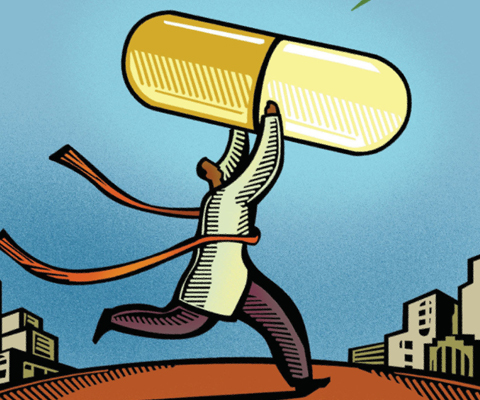
The U.S. could rein in rising drug prices by being more selective about giving patents to pharmaceutical companies for marginal developments, a study concludes.
That's because brand-name drugs with patents that grant exclusivity account for about 72 percent of drug spending, even though they are only about 10 percent of all prescriptions dispensed, according to the study, published Tuesday in JAMA, the journal of the American Medical Association.
"You've got a bunch of different tactics that are being used that can extend that exclusivity," says Aaron Kesselheim, a professor at Harvard Medical School and the study's lead author.
He says the patent office is too permissive in granting patents for drug properties that have no bearing on its therapeutic value.
Under the current law, new chemically based medications approved by the Food and Drug Administration get the right to sell their drugs with no competition from generics for five to seven years. More complex biologic drugs get 12 years of protection.
But drugmakers can also use their patents to keep competitors out of the market.
Read the full article at Shots - Health News : NPR